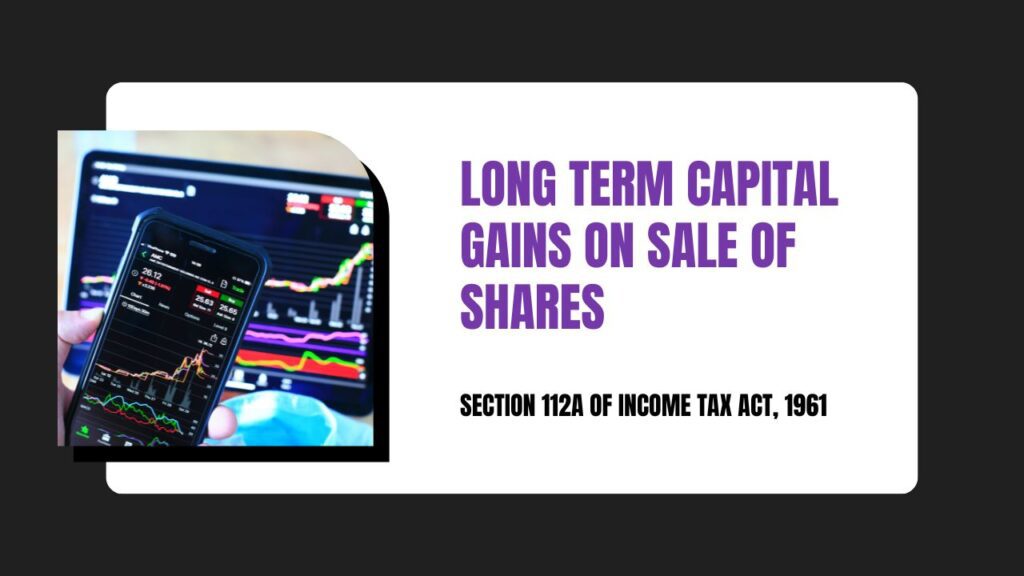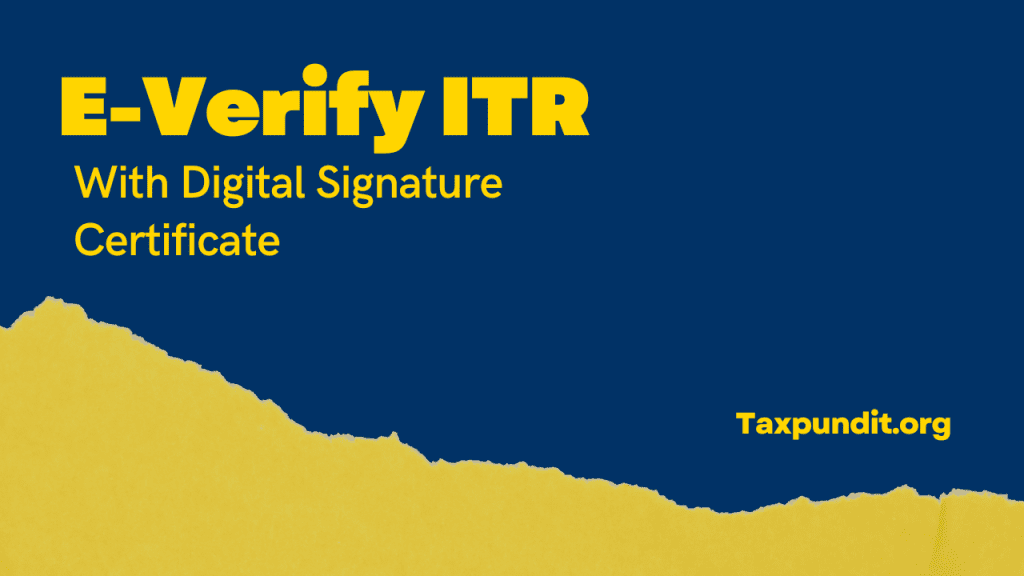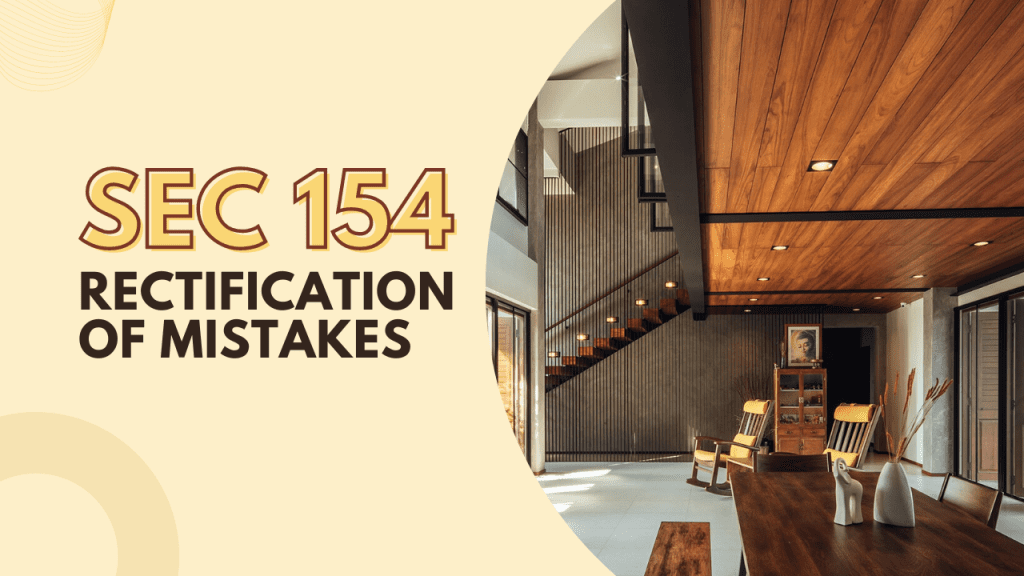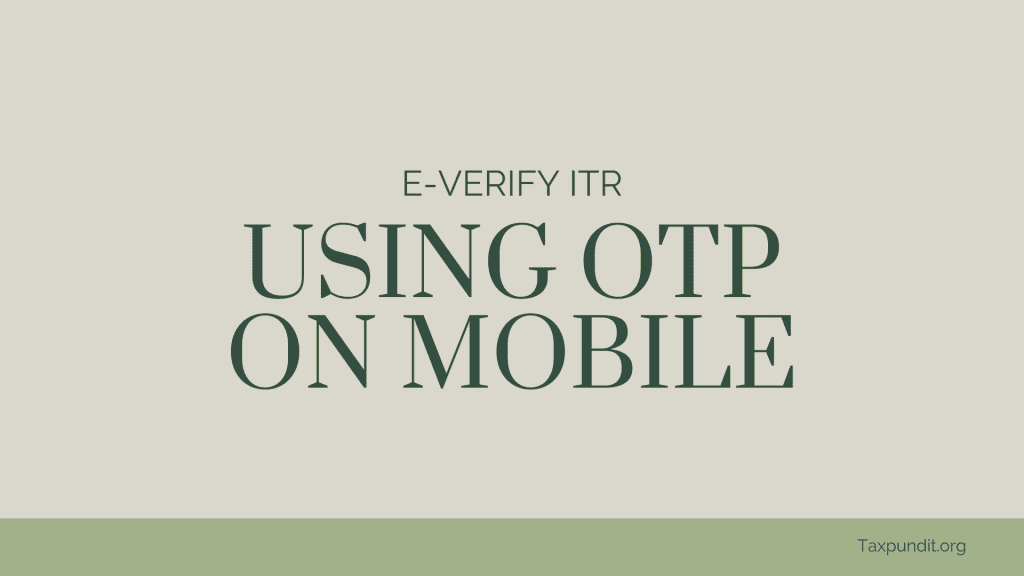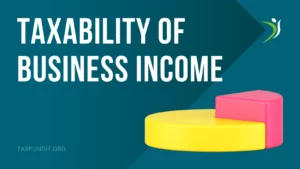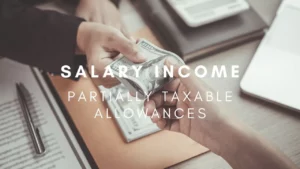Income Tax on Sale of Shares : Section 112A provides that notwithstanding anything contained in section 112, a concessional rate of tax @10% will be leviable on the long-term capital gains exceeding Rs. 1,00,000 on transfer of –
(a) an equity share in a company; or
(b) a unit of a business trust; or
(c) a unit of an equity oriented fund
Conditions for concessional rate of tax on sale of Shares
The conditions for availing the benefit of this concessional rate are –
(a) In case of equity share in a company, STT has been paid on acquisition and transfer of such capital asset
(b) In case of unit of an equity oriented fund or unit of business trust, STT
has been paid on transfer of such capital asset.
However, the Central Government may, by notification in the Official Gazette, specify the nature of acquisition of equity share in a company on which the
condition of payment of STT on acquisition would not be applicable.
Further, long-term capital gains arising from transaction undertaken on a
recognized stock exchange located in an International Financial Service
Centre (IFSC) would be taxable at a concessional rate of 10%, where the
consideration for transfer is received or receivable in foreign currency, even
though STT is not leviable in respect of such transaction.
Adjustment of Unexhausted Basic Exemption Limit
In the case of resident individuals or HUF for calculating tax on sale of shares, if the basic exemption is not fully exhausted by any other income, then such long-term capital gain exceeding Rs. 1 lakh will be reduced by the unexhausted basic exemption limit and only the balance would be taxed at 10%.
However, the benefit of adjustment of unexhausted basic exemption limit is not available in the case of non-residents.
No deduction under Chapter VI-A against LTCG taxable under section 112A
Deductions under Chapter VI-A for computing tax on sale of shares cannot be availed in respect of such long-term capital gains on equity shares of a company or units of an equity oriented mutual fund or unit of a business trust included in the total income of the assessee.
No benefit of rebate under section 87A against LTCG taxable under section 112A
Rebate under section 87A is not available in respect of tax (on sale of shares) payable @10% on LTCG under section 112A.
Frequently Asked Questions on Sale of Shares (FAQ)
Subsequent to insertion of section 112A, the CBDT has issued clarification F. No. 370149/20/2018-TPL dated 04.02.2018 in respect to tax on sale of shares in the form of a Question and Answer format to clarify certain issues raised in different for a on various issues relating to the new tax regime for taxation of long-term capital gains. The relevant questions raised and answers to such questions as per the said Circular are given hereunder:
Long term capital gains mean gains arising from the transfer of long-term capital asset.
It provides for a new long-term capital gains tax regime for the following assets–
i. Equity Shares in a company listed on a recognised stock exchange;
ii. Unit of an equity oriented fund; and
iii. Unit of a business trust.
The new tax regime applies to the above assets, if–
a. the assets mentioned in (i) and (ii) are held for a minimum period of 12 months from the date of acquisition and the asset mentioned in (iii) is held for a minimum period of 36 months; and
b. the Securities Transaction Tax (STT) is paid at the time of transfer. However, in the case of equity shares acquired after 1.10.2004, STT is required to be paid even at the time of acquisition (subject to notified exemptions).
The tax will be levied only upon transfer of the long-term capital asset on or after 1st April, 2018, as defined in clause (47) of section 2 of the Act.
The long-term capital gains will be computed by deducting the cost of acquisition from the full value of consideration on transfer of the long-term capital asset.
The cost of acquisition for the long-term capital asset acquired on or before 31st of January, 2018 will be the actual cost.
However, if the actual cost is less than the fair market value of such asset as on 31st of January, 2018, the fair market value will be deemed to be the cost of acquisition.
Further, if the full value of consideration on transfer is less than the fair market value, then such full value of consideration or the actual cost, whichever is higher, will be deemed to be the cost of acquisition.
Third proviso to section 48, provides that the long-term capital gain will be computed without giving effect to the provisions of the second provisos of section 48. Accordingly, it is clarified that the benefit of inflation indexation of the cost of acquisition would not be available for computing long-term capital gains under the new tax regime.
The long-term capital gains exceeding Rs. 1 lakh arising from transfer of these assets made on after 1st April, 2018 will be taxed at 10 per cent. However, there will be no tax on gains accrued upto 31st January, 2018.
The holding period will be counted from the date of acquisition.
No. There will be no deduction of tax at source from the payment of long-term capital gains to a resident tax payer.
The cost of acquisition of bonus shares acquired before 31st January, 2018 will be determined as per section 55(2)(ac).Therefore, the fair market value of the bonus shares as on 31st January, 2018 will be taken as cost of acquisition (except in some typical situations explained in Ans 5), and hence, the gains accrued upto 31st January, 2018 will continue to be exempt.
The cost of acquisition of right share acquired before 31st January, 2018 will be determined as per section 55(2)(ac). Therefore, the fair market value of right share as on 31st January, 2018 will be taken as cost of acquisition (except in some typical situations explained in Ans 5), and hence, the gains accrued upto 31st January, 2018 will continue to be exempt.
Long-term capital loss arising from transfer made on or after 1st April, 2018 will be allowed to be set-off and carried forward in accordance with existing provisions of the Act. Therefore, it can be set-off against any other long-term capital gains and unabsorbed loss can be carried forward to subsequent eight years for set-off against long-term capital gains.
Watch our Video on Long Term Capital Gain Tax on Sale of Shares
About Taxpundit Team
Our team consists of highly qualified, experienced and knowledgeable industry professionals that are passionate and dedicated to our clients. We provide the best possible service to our clients in a timely and effective manner, whilst always adhering to the highest levels of quality.

